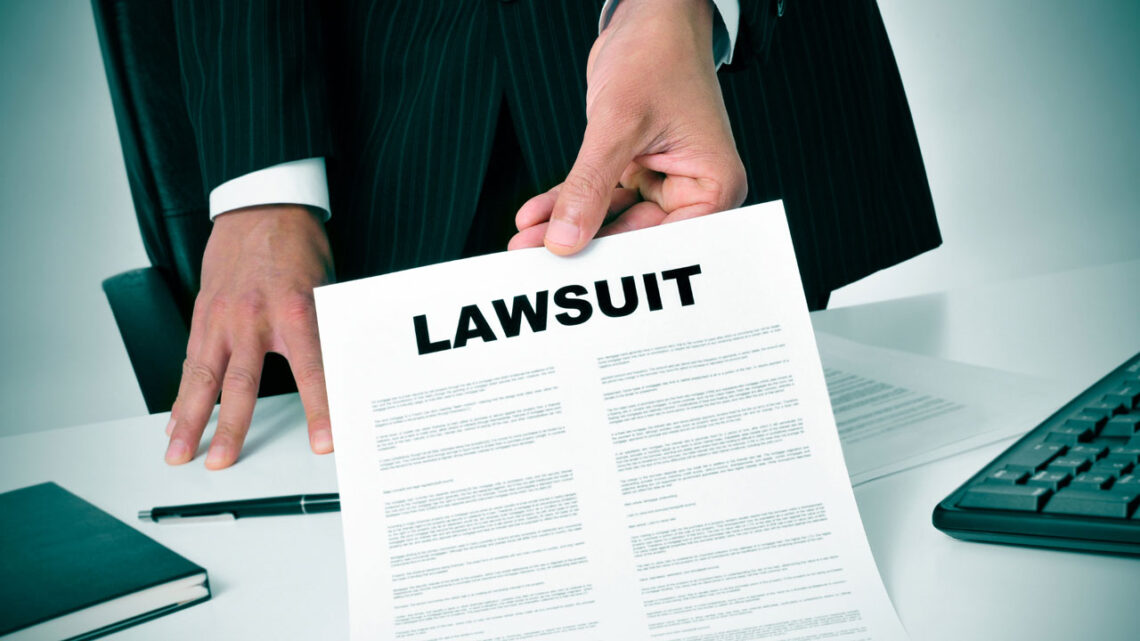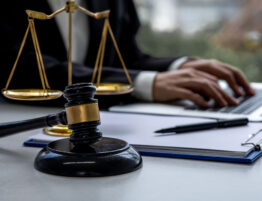
While some of the proceedings are the same, civil litigation is very different from criminal trials. In both cases, however, you need one very important thing and that is an experienced and skilled defense attorney for lawsuits against a company.
A good legal representative knows how to leverage the civil litigation process for your benefit. They also know what evidence works and what doesn’t and prepare you well for the process that is to follow.
What is a Lawsuit in Civil Litigation?
A civil lawsuit is a legal process whereby John Smith holds Jane Doe liable for causing harm. If John wins, Jane has to pay compensation to an amount claimed by John or determined by a judge or jury.
Civil lawsuits can be about almost anything but in business, the allegations usually have to do with contract disputes, harassment, discrimination, unsafe working environment, and wrongful termination.
The point of a civil lawsuit is for compensation or financial, or for relief or restraining order—not punishment like in criminal cases.
Definition of Civil Litigation
Civil litigation applies to non-criminal legal proceedings. The aim is to settle disputes and breaches of contract.
One or more parties file a claim for compensation for damages. Civil actions are handled by legal litigators who represent the injured party at arbitration and mediation, negotiations, hearings, and trials.
Your best bet to come out on top is to have a top-notch business litigation defense attorney on your side.
Everything You Need to Know About the Civil Litigation Process
The civil procedure usually follows six stages.
1. Pre-Filing
Allegations are made and both parties have time to gather information to support their case and then enter negotiations to resolve the matter.
If there is no resolution, both parties prepare for formal legal proceedings.
2. Pleading
The plaintiff formally files an initial complaint and the defendant files a response or a motion.
3. Discovery
During the discovery stage, parties exchange information gained through investigation and determine the strength of the case.
4. Pre-Trial
During the pre-trial stage, parties collect evidence, secure witnesses, and bolster their cases as much as possible. At this point, there is still an opportunity to settle the matter out of court.
If a settlement is out of the question, the parties file motions with the court for legal judgment and resolution.
5. Trial
During trial court proceedings, both parties present evidence and arguments to a judge or jury. Depending on the complexity of the case, the civil trial could last for a few hours or months. The trial judge and jury examine the witnesses and evidence before entering a judgment.
6. Post-Trial
Plaintiffs and defendants have the right to appeal the decision.
An Insight Into Filling a Complaint
It’s easy to file a complaint, especially when you have a good business litigation defense attorney working with you.
Your experienced attorney will guide you through the process step-by-step, providing valuable insights along the way.
Who Can File a Complaint?
Anyone with a grievance can file a civil complaint. For example, a homeowner can file a complaint because her neighbor’s tree is dropping fruit on her driveway.
How Long Does it Take to File a Complaint?
Filing a complaint is fairly quick. It’s the trip through the legal system that takes time. It depends on the compensation amount, the volume of factual evidence, the court’s schedule, the complexity of the litigation, etc.
If the parties are willing to settle out of court, the civil lawsuit process can take an afternoon. However, if there are multiple parties with varying claims for compensation, the process can take years.
What are the Factors Included in a Complaint?
Complaints must include:
- Caption – This names both parties, the court where the complaint is filed, a file number or docket, and a title.
- Statement – This shows that the court has the jurisdiction to hear the case and that the complaint has been filed at the correct venue.
- Factual elements – This is a statement that contains the facts supporting your case, including the manner of harm and entitlement to relief.
- Specific request – The request specifies the manner of relief (the desired outcome of the lawsuit).
What is a Discovery Process?
The discovery period includes steps to find out as much as you can about the other party’s case. There are four elements.
Interrogatories
The parties provide each other with a list of questions that must be answered to the best of their knowledge and under oath.
For example:
- Insurance cover
- Identity of witnesses
- Identification of evidence
- Information about damages (medical treatment, financial losses).
Request for Documents
Parties request information from one another. They have the right to object to document requests.
Documents typically include:
- Medical/treatment records
- Pictures/videos of the scene and injuries if applicable.
- Police/accident reports
Requests for Admissions
Parties provide a list of allegations that the receiving party must confirm or deny. This prevents extraneous avenues of contestation. For example, had the plaintiff been drinking at the time of the alleged event?
Depositions
Depositions are recorded question-and-answer sessions for each party and their expert witnesses. A court reporter can record the session or it can be video recorded. The session is conducted under oath.
The Pre-Trial Proceedings
Pre-trial proceedings begin when the plaintiff files a complaint in court. The complaint includes the plaintiff’s side of the story, the legal theory or negligence, and a request for damages or relief.
The court clerk issues a summons to the defendant, notifying them that a lawsuit has been filed against them.
The defendant has time to file a response, admitting or denying the allegations.
What are Motions?
Motions are requests for a judge to make a legal ruling.
Examples include:
- Motion to discover
- Motion to dismiss
- Motion for judgment or summary disposition
Negotiating Settlements
Most civil cases are resolved out of court through negotiations. In some cases, the matter is resolved before a civil suit is filed.
A settlement isn’t an admission of guilt and it needn’t resolve all aspects of the lawsuit.
For example, in an uncontested divorce, both parties might agree on spousal support, but not who gets custody of the kids.
The Trial Proceedings
If the case is going to be presented before a jury, the proceedings start with jury selection. The judge then opens the case and both sides make an opening statement, starting with the plaintiff.
The plaintiff presents their case, including all evidence and witness interviews. The defendant moves the court for a directed verdict when there isn’t a sufficient evidentiary basis for a reasonable jury to reach a different conclusion.
If the motion is denied, the defendant presents their case. Once both sides have presented their cases, they are given a chance for rebuttal, then all parties rest. The defendant asks for another summary judgment based on the evidence. If it’s denied, both parties make their closing statements.
Following this, the presentation of evidence is closed and the case rests in the hands of the jury – and judge.
Bench or Jury Trial
- A bench trial is when the case is presented before a judge only, where the judge makes the final decision.
- A jury trial is when the case is presented before a judge and jury, here the jury makes the final decision.
Presenting Evidence and Legal Theories – Disclosing Arguments
Both parties present evidence that supports their case. The evidence can be direct like eye witness, confession, weapon, or circumstantial.
Circumstantial evidence, on the other hand, suggests or implies facts that any reasonable person can use to infer connections or links between physical evidence and wrongdoing.
Lawyers use closing arguments to recap their evidence while poking holes in the other party’s case, and the plaintiffs go first.
Learn from Reliable Civil Lawsuit Defense Lawyers Near Me
LibertyBell Law Group’s attorneys are skilled litigators who represent their clients in settlement negotiations and court trials
Our defense attorneys for lawsuits against a company offer a completely personalized service to ensure you get the representation you deserve.
One of the things that set us apart from our competitors is our 24-hour service. Contact us now by calling 866-320-4854 to book a free consultation with our legal team at LibertyBell Law Group today!









